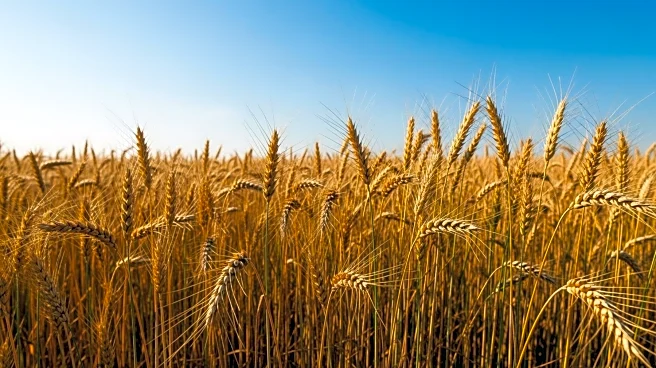What's Happening?
The Ministry of Agriculture, Irrigation, and Livestock in Afghanistan has announced the purchase and storage of surplus wheat from local farmers. This initiative, directed by the Leader of the Islamic
Emirate of Afghanistan, aims to support farmers, prevent wheat smuggling, and prepare for emergencies. The ministry has stored 21,400 tons of wheat, valued at 500 million Afghanis, from various provinces. This move is part of a broader effort to increase domestic wheat production by 2 million metric tons to meet the country's annual demand of over 7 million metric tons.
Why It's Important?
This initiative is crucial for Afghanistan's food security and economic stability. By purchasing surplus wheat, the government aims to reduce reliance on imports and strengthen food self-sufficiency. This strategy not only supports local farmers but also helps stabilize market prices and prevent inflation. Economic experts highlight that such measures can create job opportunities and maintain the value of the Afghani currency. Encouraging local production is vital for Afghanistan's agricultural economy, especially in the face of potential natural disasters and market fluctuations.
What's Next?
The Ministry plans to continue increasing domestic wheat production to fully meet national demand. This involves ongoing support for farmers and strategic storage programs to control inflation and stabilize the market. The government is expected to monitor wheat prices and release reserves as needed to maintain market balance. These efforts are part of a long-term strategy to enhance Afghanistan's agricultural sector and ensure food security.









